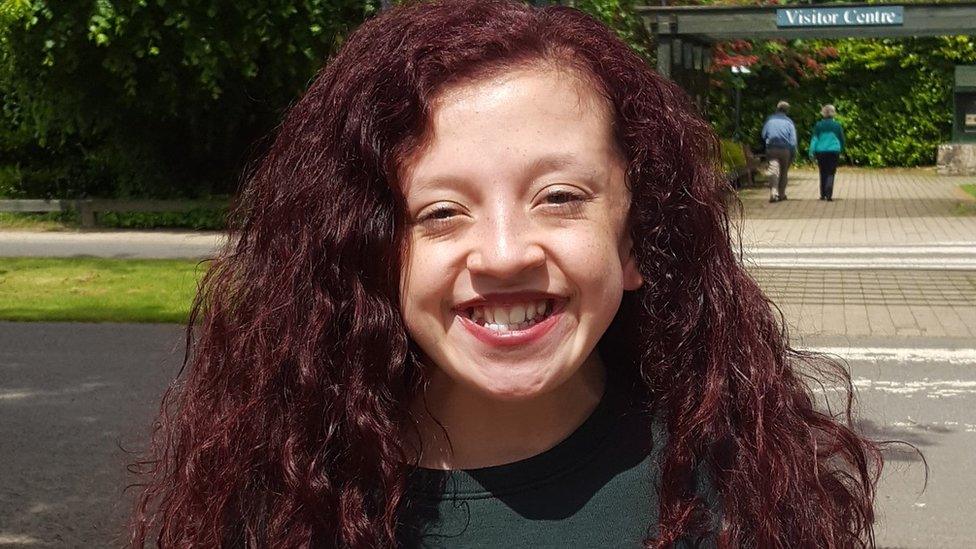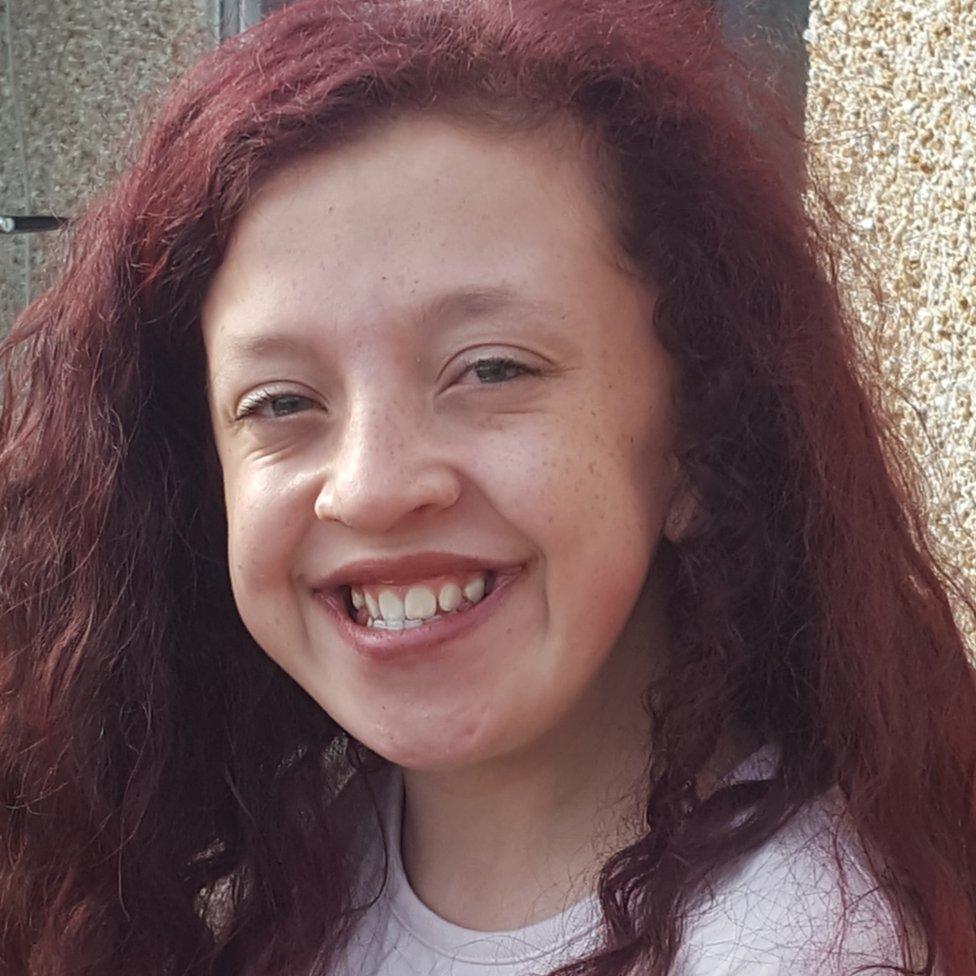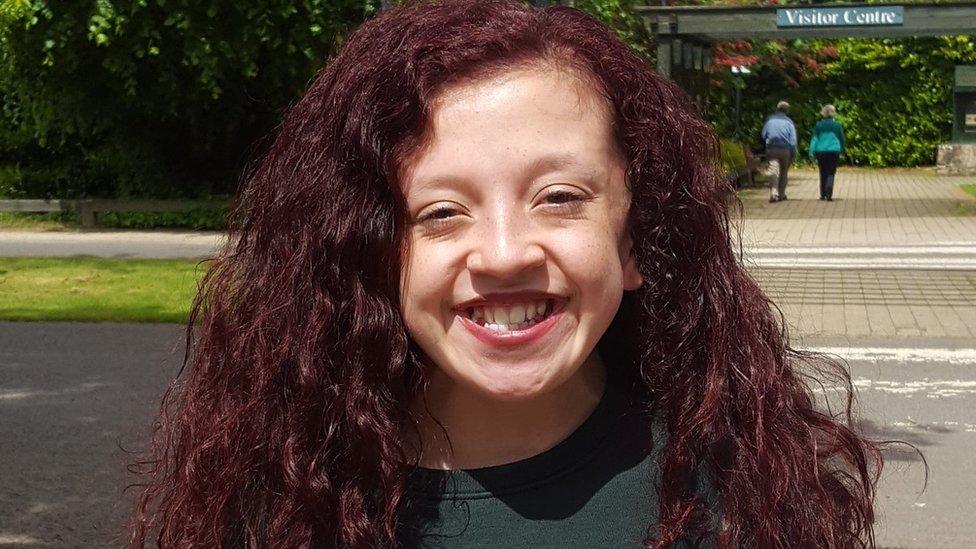Amy Allan death: Significant failings in care by Great Ormond Street Hospital
- Published

Amy Allan died at Great Ormond Street Hospital last year
The coroner looking into the death of Scottish teenager Amy Allan has found significant failings in her care by Great Ormond Street Hospital.
Amy, from Dalry in North Ayrshire, was 14 when she died in September last year following surgery on her spine.
Coroner Edwyn Buckett outlined poor planning and support from the hospital.
But he said he "was not able to make a firm conclusion" that those omissions "had caused or materially contributed to her death."
The coroner is however likely to issue a prevention of future deaths report.
Great Ormond Street Hospital admitted Amy's care "fell short of the high standards" it should be meeting but said it had made changes to the way it worked.
'Live wire'
Amy Allan was born with a genetic condition called Noonan Syndrome, which caused a number of heart problems throughout her life.
As she got older her spine started to curve due to scoliosis and it was clear she needed surgery to reduce her pain and prevent it getting worse.
However, her heart problem - pulmonary hypertension- made the surgery more complicated.
It was decided the operation should be carried out at Great Ormond Street Hospital (GOSH) in London, because it had the necessary heart specialists on site to treat any complications, specifically a life-support system known as ECMO which oxygenates blood outside the body.
However, when Amy's ventilation tube was removed after the operation and she needed the back-up cardiac and ECMO teams, they were not available.
Giving a narrative verdict, the coroner found:
there was poor planning of Amy's care once she was accepted on the intensive care unit.
there was no ECMO life-support system for Amy and "the therapy should have been at the forefront" of the team looking after her.
no-one was in charge of Amy's post-operative care, of ensuring that ECMO support was in place.
Her ventilation tube was removed "in the face of worsening vital signs" and without a cardiac assessment having been made.
Speaking to the BBC, Mrs Allan said her daughter was a "live wire" who always had a smile on her face.
"She had an attitude to life we all envied," her mother said.
She said it took two years from her first hospital appointment in Kilmarnock until the date of the operation at Great Ormond Street.

Amy had an heart condition from birth

During that time Amy made four visits to the London hospital and underwent a battery of tests.
"She had every test known to man plus two multi-disciplinary meetings about her," her mother said.
Her parents said there were assured that the ECMO back-up would be available if anything went wrong.
Amy was excited about the operation, her parents said. Her biggest concern was the ventilation tube being left in for 24 hours after her operation.
St Pancras Coroner's Court heard that a junior doctor extubated Amy - removed her ventilation tube - shortly after 23:20, just hours after her surgery, and she rapidly declined.

Leigh and Richard Allan said their daughter had an attitude to life they all envied
The tube was removed despite several medical readings suggesting she wasn't stable enough.
It was only then that her parents found out that there was no ECMO back-up at that time of night and the cardiac team was not aware of Amy's presence.
Amy's mother told the BBC: "I wish I had asked more questions and said 'are these people on standby?' I honestly didn't think for a minute they weren't. I just assumed they were there."
Mrs Allan said she was told that the tube was removed because Amy had asked for it.
"That's the only justification they gave for taking it out," she said.
"I can't accept that was even a consideration. Of course, the child was going to wake up and want the tube out. Even an adult would want that."
Her parents were at the bedside as Amy's blood pressure plummeted and her heart rate start racing.
"We watched it all," her father said. "We were there all through the night watching them panic in front of our eyes."
They said Amy had been sedated earlier but she was conscious and "terrified" as doctors tried to help her.
At about 03:00 they decided to put her tube back in and her parents were asked to leave.
The ECMO team was assembled at 04:00 but did not begin to work on Amy until 07:15 because they are not routinely available at all hours.
Amy died 23 days later from sepsis on 28 September.
Her mother said: "She didn't look like Amy by that point, she had suffered so much."
Amy's parents said Great Ormond Street had never admitted their mistakes and called for a full inquiry by the Care Quality Commission.
She said: "We are appalled to see the lack of openness and honesty in the hospital's response. We want GOSH to tell the truth."
"It is not the 24-hour service they offer, there is a lack of nursing staff, there's a lack of consultants and I don't think it is the service they advertise.
"I would expect the relevant bodies to go in and look at it now because it's not right."
A spokesman for Great Ormond Street Hospital said: "We are very sorry Amy's care fell short of the high standards we should always be meeting."
He said changes had already been made to the way they worked to support children with complex conditions.
This included improving the way clinical information is shared between teams and enhancing multi-disciplinary assessments, he said.
"We will look closely at the Coroner's findings to consider if any additional action is needed," he said.
- Published4 September 2019

- Published3 September 2019

- Published2 September 2019
